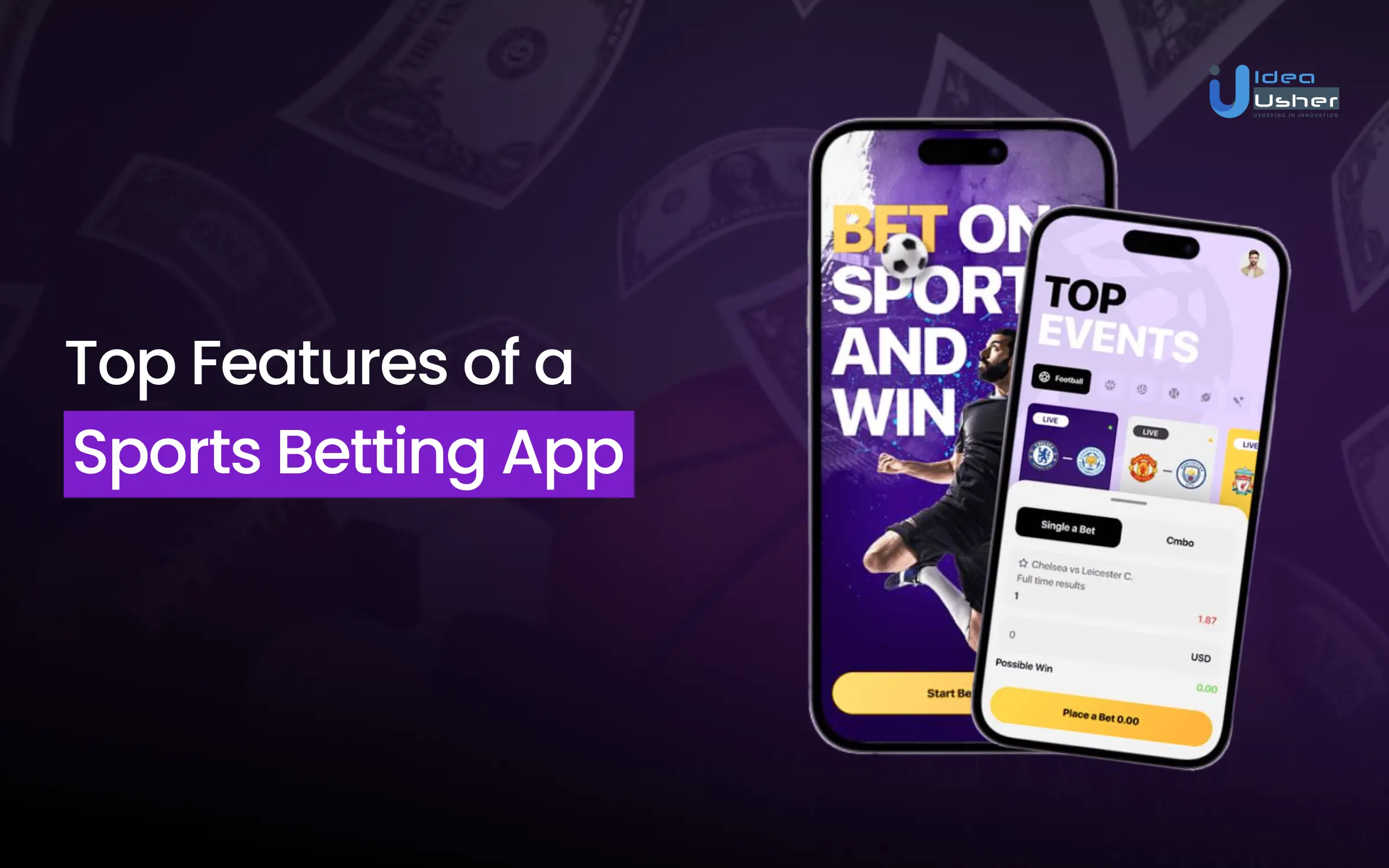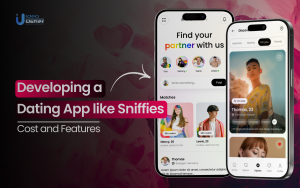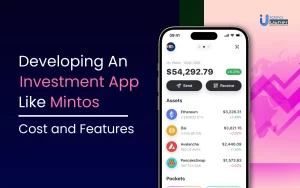These days, people are always looking for new ways to stay connected to their favorite sports and enhance their experience. Traditional sports betting methods can be inconvenient, often involving trips to physical betting shops or navigating complicated online platforms. That’s where sports betting apps come in, offering a simple and accessible way for fans to get involved. By downloading an app, users can easily place bets on a wide range of sports from their phones or tablets. These apps offer real-time updates, live streaming, and various betting options, giving fans everything they need to make smart bets and enjoy the game to the fullest.
In 2022, the global sports betting app market reached a value of USD 83.65 billion, showing just how many people are turning to apps to place bets on their favorite sports. With demand on the rise, it’s the perfect opportunity for businesses to tap into this growing market!
With these trends, sports betting apps are thriving in the US market. In this post, we’ll guide you through the key features needed to make your sports betting app stand out. Let’s dive in!
Key Market Takeaways for Sport Betting Apps
Source: GrandViewResearch
These developments have enabled sports betting platforms to become more accessible and user-friendly, attracting a broader audience. The convenience offered by mobile platforms has enhanced the overall betting experience, making it easier for operators to engage and retain users. The integration of digital technologies has played a key role in boosting the popularity of sports betting. By offering seamless and interactive betting experiences, these platforms have been able to attract new customers.
Furthermore, regulatory changes in many countries have created new opportunities for sports betting operators. Governments are relaxing restrictions on betting and gambling activities, which is opening up lucrative markets. For instance, in the United States, 36 states had legalized sports betting by early 2023, compared to just 32 in 2021. In the first ten months of 2022, approximately USD 73 billion was wagered legally on sports in the U.S., underscoring the significant economic potential of this industry.
Work with Ex-MAANG developers to build next-gen apps schedule your consultation now
Are Sports Betting Apps Profitable?
The profitability of sports betting apps is increasingly evident as the industry continues to grow at an impressive pace. In the U.S. alone, sports betting apps generated $7.4 billion in revenue in 2022, marking a remarkable 71% increase from the previous year, and this figure escalated to a record $10.92 billion in 2023, reflecting a 44.5% year-over-year growth.
Customer Lifetime Value
A crucial metric for understanding profitability is Customer Lifetime Value. The LTV for sports betting apps can be calculated using the formula:
LTV=Average Revenue per User ARPU ×Average Lifespan of a Player
For instance, if the ARPU is estimated at around $135.40 and players typically engage with an app for about 24 months, the LTV would be approximately $3,249.60. This substantial LTV underscores the importance of retaining users through effective engagement strategies and promotions.
Revenue Models
Sports betting apps typically generate revenue through:
- Commission on bets placed: Often referred to as the “hold percentage,” which can range from 5% to 10%.
- In-app purchases and subscriptions: Some platforms offer premium features or enhanced betting options for a fee.
Examples of Sports Betting Apps
FanDuel and DraftKings are two of the leading sports betting apps in the U.S., each employing significant marketing strategies to acquire customers. FanDuel reports an average CAC of $68, supported by an annual advertising investment of around $20 million. This relatively low CAC reflects its effective marketing campaigns and broad brand recognition in the industry.
In contrast, DraftKings faces a much higher CAC, exceeding $500 for online casino players, indicative of the competitive landscape and the costs associated with attracting users in this segment. DraftKings has invested heavily in marketing, spending over $1.2 billion on advertising in 2023 alone, which underscores its commitment to expanding its user base and enhancing brand visibility.
Key Features of a Sports Betting App
Sports betting apps have emerged as a lucrative market segment, offering a convenient and engaging platform for app users to place bets on various sporting events. To understand the business growth potential of these apps, it is crucial to examine the key features that drive user adoption and revenue generation.
1. Betting Markets
A nice range of betting options, including moneyline, point spread, over/under, parlays, and futures, caters to different betting preferences and strategies. For instance, users on popular apps like DraftKings and FanDuel can bet on the winner of a football game (moneyline), the margin of victory (point spread), the total number of points scored (over/under), or even the outcome of specific player props (futures).
2. Live Odds
Real-time updates on betting odds ensure that users have access to updated information, enabling them to make better decisions and potentially capitalize on favorable odds. Apps like Bet365 and William Hill excel at providing live odds for a wide range of sports, allowing users to adjust their bets based on the unfolding action.
3. In-Play Betting
The ability to place bets during a live game adds excitement and dynamism to the betting experience. It also provides opportunities for users to react to unexpected developments and potentially increase their winnings. Apps like Unibet and Pinnacle offer extensive in-play betting options, covering everything from cricket to tennis and basketball.
4. Live Streaming
Integrating live streaming of selected sports events directly within the app offers a seamless and immersive experience for users. It enhances the overall value proposition and encourages users to stay engaged with the platform. Apps like BetMGM and PointsBet often include live streaming of popular sports leagues, allowing users to watch the game and place bets simultaneously.
5. Account Management
User-friendly account management features, including easy deposit and withdrawal options, betting history tracking, and secure settings, contribute to a better user experience and foster customer loyalty. Apps like Betfair and 888sport provide robust account management tools, making it easy for app users to deposit funds, track their betting history, and manage their account settings.
Features That Can Enhance a Sports Betting App
Incorporating cutting-edge features can significantly enhance a sports betting app, providing a more engaging and personalized experience for users. Here are some innovative features that can drive business growth:
1. In-Play Betting Analytics
Provide users with real-time data and analytics to inform their in-play betting decisions. This could include statistics on player performance, team momentum, and game events.
2. Live Streaming with Interactive Features
Offer live streaming of sports events with interactive features, like the ability to pause, rewind, or even fast-forward. This can enhance the overall experience and encourage engagement.
3. Bet Builder Tools
Empower users to create custom bets by combining different selections from the same game. This can offer a more personalized and tailored betting experience.
4. Virtual Reality Sports Simulations
Provide users with the opportunity to experience virtual reality sports simulations, offering a more immersive and interactive way to engage with sports betting.
5. Social Betting Challenges and Leagues
Foster a sense of community and competition by allowing users to participate in social betting challenges and leagues. This can encourage repeat usage and increase customer loyalty.
6. Integration with Fantasy Sports Platforms
Partner with fantasy sports platforms to offer a seamless experience for users who participate in both sports betting and fantasy sports.
7. Personalized Betting Recommendations
Utilize AI and machine learning to provide app users with personalized betting recommendations based on their preferences, betting history, and real-time data. This can help users discover new betting opportunities and increase engagement.
What are the Algorithms Used in Sports Betting Apps?
Sports betting apps employ sophisticated algorithms to refine predictions and optimize betting strategies, leveraging extensive datasets.
1. Value Betting Algorithms:
These algorithms calculate the expected value of a bet by comparing the implied probability (derived from odds) with the actual probability of an event occurring. For instance, if a team has a 60% chance of winning but the odds suggest only a 50% implied probability, the algorithm identifies this as a value bet.
2. Arbitrage Betting Algorithms:
Arbitrage algorithms scan multiple sportsbooks for discrepancies in odds, enabling bettors to place wagers on all possible outcomes of an event. This guarantees a profit regardless of the result. For example, if one book offers Team A at +150 and another offers Team B at +200, an arbitrage opportunity exists.
3. Machine Learning Algorithms:
These algorithms utilize historical data to train predictive models. Techniques like regression analysis and decision trees can identify correlations between variables, such as player performance metrics and game outcomes. Companies like ZCode System leverage machine learning to enhance prediction accuracy in various sports.
Development Steps for a Sports Betting App
Here are some developmental steps for a sports betting app,
1. Market Research and Analysis
Before starting the development of a sports betting app, companies need to conduct thorough market research. This involves identifying the target audience, focusing on specific demographics, and understanding their preferences.
2. Ensure Regulatory Compliance and Licensing
Companies must carry out jurisdictional research to identify the proper regulations and licensing requirements in their target market. Consulting with legal experts will help ensure compliance with all applicable laws.
3. Develop Risk Management Algorithms
A sports betting app’s success depends on the accuracy of its odds calculation algorithms. Companies must develop sophisticated algorithms to ensure precise odds for various betting markets. In addition, implementing effective risk management strategies is vital.
4. Integration with Sports Data Feeds
Access to real-time sports data is critical for the functioning of a sports betting app. Businesses should partner with reliable sports data providers to ensure they receive real-time scores, statistics, and event updates.
5. Creation of Recommendation Systems for Betting
Personalized user experiences have become increasingly important for businesses in the digital space. By developing algorithms that provide personalized betting recommendations, companies can significantly enhance user engagement.
6. Implementation of In-Play Betting Features
In-play betting is a key feature for modern sports betting apps, allowing app users to place bets while games are in progress. Developing this feature requires the integration of real-time updates to ensure users receive accurate information during events.
7. Security and Fraud Prevention
Security is a top priority for any sports betting app, particularly given the financial transactions involved. Companies must implement data encryption protocols to protect user information and prevent unauthorized access.
Cost of Developing a Sports Betting App
| Development Stage | Tasks | Cost Range (USD) |
| 1. Research and Planning | – Market research (target audience, competition, regulations)- Business model definition (revenue streams, monetization)- Financial projections and risk analysis | $1,000 – $3,000 |
| 2. Frontend Development | – Wireframing and prototyping- UI/UX design (intuitive, responsive, visually appealing)- Cross-platform development (iOS, Android, web) | $3,000 – $10,000 |
| 3. Backend Development | – Server setup and configuration (scalable architecture)- Database design (user data, transactions, betting history)- API integration (sports data feeds, payment gateways, KYC/AML compliance)- Security protocols (data encryption, fraud detection)- Odds calculation engine and live updates | $5,000 – $15,000 |
| 4. Core App Features | – Betting markets (pre-match and in-play betting)- Live odds updates- Cash-out options- Bet slip functionality- Sports categories integration- User account management (registration, login, profile)- Payment gateway integration (credit/debit cards, e-wallets, cryptocurrencies) | $3,000 – $10,000 |
| 5. Additional App Features | – Push notifications (bet reminders, promotions)- Social sharing features (invite friends, community leaderboards)- Personalized user recommendations (based on betting history)- Multi-language support- In-app chat and customer support | $2,000 – $8,000 per feature |
| 6. Testing and Quality Assurance | – Functional testing (end-to-end testing of core and additional features)- Load and performance testing (scalability, speed)- Security and penetration testing (vulnerability assessments, fraud prevention)- Cross-platform testing (iOS, Android, web browsers) | $2,000 – $7,000 |
| 7. UI/UX Design | – High-fidelity design- User experience design (seamless navigation, ease of use)- Branding elements (color schemes, fonts)- Animations and micro-interactions | $2,000 – $6,000 |
| 8. Deployment and Maintenance | – App store submission (iOS App Store, Google Play Store)- Compliance with store guidelines (user data, payments)- Bug fixes and app updates (ongoing maintenance)- Adding new features post-launch (live odds, new betting options) | $1,000 – $3,000 per year |
| 9. Marketing and Customer Acquisition | – App promotion (digital marketing, social media campaigns)- Paid advertising (Google Ads, Facebook Ads)- Affiliate marketing and partnerships- User onboarding campaigns (bonuses, promotions) | $1,000 – $3,000 |
Total Cost Estimate – $10,000 – $100,000
The development cost of a sports betting app can vary significantly depending on several factors. Here are some key variables,
Regulatory Compliance
Sports betting is subject to strict regulations in many jurisdictions. Ensuring compliance with licensing requirements, responsible gambling guidelines, and data privacy laws can significantly increase development time and costs.
Data Integration and Accuracy
Integrating real-time sports data feeds, odds calculations, and live streaming services requires specialized expertise and can introduce complexities related to data accuracy and reliability.
Risk Management and Fraud Prevention
Sports betting involves inherent risks, such as match-fixing and fraudulent activities. Implementing robust security measures and fraud detection systems is crucial to protect the business and maintain user trust.
Odds Calculation and Algorithm Development
Creating accurate and competitive odds requires advanced algorithms and statistical models. This can be a complex and computationally intensive task, demanding expertise in data science and mathematics.
Tech Stacks Required to Develop a Sports Betting App
Developing a sports betting app requires a well-rounded tech stack that covers frontend development, odds calculation, data integration, and security. Companies need to focus on these components to create a competitive app that meets industry demands.
1. Frontend Development
Frontend development relies on HTML, CSS, and JavaScript to build user-friendly interfaces. Frameworks like React, Angular, and Vue.js help create dynamic applications, while libraries such as Material-UI and Bootstrap streamline design with pre-built components. This combination allows companies to create an engaging and responsive interface.
2. Odds Calculation and Risk Management Models
Businesses use libraries like SciPy, NumPy, and Pandas for odds calculation and risk management. Monte Carlo simulations and statistical modeling help accurately calculate odds and minimize arbitrage risks. These tools ensure that companies can manage risks effectively while offering users fair betting options.
3. Sports Data APIs and Data Warehousing
APIs from providers like SportsRadar and Genius Sports deliver real-time sports data. Companies store and analyze this data in warehouses such as Snowflake and Redshift. By integrating these tools, businesses can provide users with up-to-date information and betting insights.
4. Blockchain Technology for Transparency and Security
Blockchain platforms like Ethereum, Solana, and Polygon offer enhanced security for sports betting apps. Companies use smart contracts to define betting rules and guarantee fair outcomes. This technology ensures transparency and builds trust by securing user transactions.
5. Natural Language Processing for Sentiment Analysis
NLP tools like NLTK, spaCy, and Gensim allow businesses to analyze sports-related social media and news. Techniques like sentiment analysis and machine learning algorithms, such as neural networks, offer valuable insights for betting decisions. Tools like TensorFlow and PyTorch assist in building these predictive models.
Most Successful Business Models for Sports Betting Apps
The sports betting app industry has evolved significantly, and several successful business models have emerged. Here are some of the most successful models,
1. Freemium Model
The freemium model allows app users to access the basic features of the app for free while offering premium features at a cost. This model is particularly effective in attracting new users who may be hesitant to spend money upfront.
According to industry reports, apps that utilize the freemium model see user acquisition rates increase by up to 50%. This model not only helps in building a large user base but also converts a significant percentage into paying customers over time.
Example: BetMGM
BetMGM utilizes a freemium model, offering new users enticing bonuses, such as up to $1,000 in free bets. This strategy lowers the entry barrier for users, encouraging them to explore the app without initial financial commitment. Additionally, BetMGM has integrated an omnichannel marketing approach, leveraging its relationship with MGM Resorts to enhance user engagement.
- Market Reach: BetMGM operates in 29 markets across North America, including 20 states, Washington D.C., Puerto Rico, and Ontario.
- User Engagement: The introduction of a single account and wallet system has led to a 5x increase in new state bettors who previously played in different states.
- Revenue Growth: BetMGM’s revenue guidance for 2023 is projected to be between $1.8 billion and $2.0 billion, with a 76% increase in net gaming revenue reported recently.
2. Subscription Model
The subscription model charges users a recurring fee for access to premium content or features. This model is gaining traction as it provides a steady revenue stream for betting apps.
Research indicates that subscription-based models can lead to a 30% increase in customer retention rates when compared to traditional pay-per-use models. This approach not only stabilizes revenue but also fosters a loyal customer base.
Example: DraftKings
DraftKings employs a subscription model, offering premium features such as advanced analytics and exclusive betting options for a monthly fee. This model not only generates consistent revenue but also fosters loyalty among users who seek enhanced betting experiences.
- User Base: DraftKings has reported over 30 million customers, with a significant portion subscribing to premium services for personalized betting insights.
- Retention Rates: Subscription models typically yield a 30% higher retention rate, which DraftKings leverages to maintain user engagement and profitability.
- Wagering Volume: In 2022, BetMGM reported total wagers exceeding $8 billion, marking a substantial increase from previous years.
3. In-App Purchases
In-app purchases allow users to buy virtual goods or features within the app, enhancing their betting experience. This model is particularly popular among younger audiences who enjoy gamification elements.
Apps that integrate in-app purchases report an increase in average revenue per user by 20-40%. This model capitalizes on impulse buying behaviors, especially during major sporting events when user engagement peaks.
Example: FanDuel
FanDuel incorporates an in-app purchase model, allowing users to buy additional betting credits or access special features like enhanced odds. This gamification strategy appeals particularly to younger audiences who enjoy interactive experiences.
- User Engagement: FanDuel has seen an increase in average revenue per user by 20-40% through in-app purchases, particularly during major sporting events.
- Market Position: FanDuel consistently ranks as one of the top sports betting apps in the U.S., capturing approximately 40% of the market share as of 2023.
- User Base: It has over 30 million registered users, with significant growth in active subscribers due to premium offerings.
4. Affiliate Marketing Model
The affiliate marketing model involves partnering with other businesses or influencers who promote the app in exchange for a commission on referred users. This model leverages existing networks and communities to drive user acquisition.
Affiliate marketing can account for up to 30% of total revenue for sports betting apps. Reports show that companies utilizing this model experience a 50% higher conversion rate from leads generated through affiliates compared to traditional advertising methods.
Example: Caesars Sportsbook
Caesars Sportsbook utilizes an affiliate marketing model, partnering with influencers and sports websites to promote their platform. Affiliates earn commissions based on the total no. of new users they refer, effectively expanding Caesars’ reach without significant upfront costs.
- Revenue Contribution: Affiliate marketing can account for up to 30% of total revenue for sports betting apps like Caesars.
- Conversion Rates: Leads generated through affiliate partnerships have shown a 50% higher conversion rate compared to traditional advertising methods.
- 2023 Revenue: Caesars Sportsbook reported revenues of about $1 billion, reflecting growth from its aggressive marketing strategies and partnerships.
Conclusion
The development of a sports betting app for common people presents a significant opportunity for businesses to capitalize on its growing popularity. By providing a convenient and accessible platform for users to place bets on various sporting events, businesses can generate substantial revenue through transaction fees, advertising, and partnerships with sports leagues.
Looking to Develop a Sports Betting App?
Idea Usher is your partner in innovation. With a proven track record and over 500,000 hours of coding expertise in sports app development, we specialize in crafting cutting-edge solutions that streamline the booking process, enhance user experience, and drive engagement. Our team of skilled developers leverages advanced technologies to create intuitive interfaces, seamless integrations, and robust features tailored to your specific needs. From real-time availability checks and secure payment gateways to personalized recommendations and social sharing capabilities, we’ll build a sports betting app that sets new standards in the market.
Work with Ex-MAANG developers to build next-gen apps schedule your consultation now
FAQs
Q1: How to develop a sports betting app?
A1: Developing a successful sports betting app requires a comprehensive approach. First, conduct thorough market research to figure out the target audience, analyze competitor offerings, and understand industry trends. Next, obtain necessary licenses and permits from relevant regulatory bodies to ensure legal compliance. Design a cool interface with intuitive navigation and engaging features, such as live streaming, in-play betting, and personalized recommendations.
Q2: What technologies are used to develop a sports betting app?
A2: Sports betting apps typically use a combination of technologies, including programming languages like Java, Swift, Kotlin, or Python for backend development and JavaScript, HTML, and CSS for frontend development. Frameworks like React Native, Flutter, or Ionic can be used to create cross-platform apps, while databases like MySQL, PostgreSQL, or MongoDB store and manage data.
Q3: What is the cost of developing a sports betting app?
A3: The cost of developing a sports betting app can vary significantly depending on the complexity, features, design, and location of the development team. A basic app might be less expensive than a more sophisticated one with advanced features, real-time data, and integration with multiple sports leagues. Additional costs to consider include licensing fees, ongoing maintenance, and marketing expenses.
Q4: How do sports betting apps make money?
A4: Sports betting apps generate revenue primarily through a process known as “vigorish” or “juice.” This is similar to a commission charged on each bet placed. For example, if a bettor places a $100 bet on a team to win, the app might charge a 5% vig, meaning the bettor is actually only wagering $95. The app keeps the remaining $5 regardless of the outcome. This built-in advantage ensures that the app profits over the long term, even if individual bettors experience short-term wins.
























